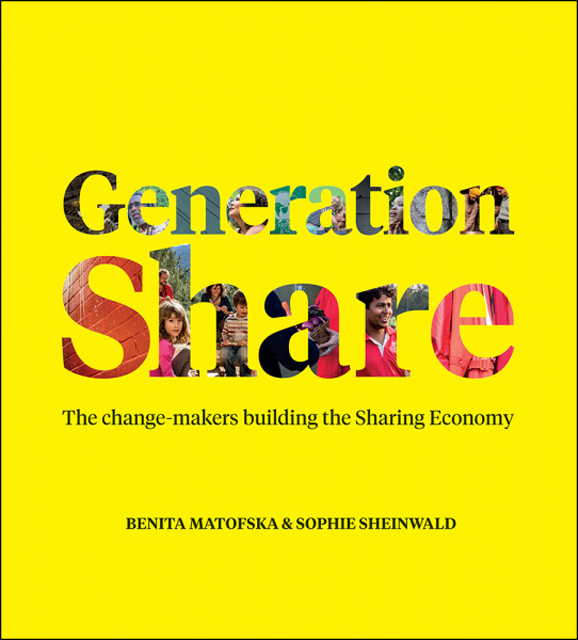Book contents
- Frontmatter
- Dedication
- Miscellaneous Frontmatter
- Contents
- Our Sponsor
- What Is The Sharing Economy?
- Does Age Matter?
- Sharing By Gender
- Sharing The City
- Sharing The Countryside
- Sharing The Money
- Is Sharing Cultural?
- Sharing And Disability
- The Geography Of Sharing
- Conclusion
- Notes
- Generation Share demonstrates the power of Sharing. The change-makers show just what’s possible – now it’s your turn. What can you share? How can you make a difference?
What Is The Sharing Economy?
Published online by Cambridge University Press: 14 October 2022
- Frontmatter
- Dedication
- Miscellaneous Frontmatter
- Contents
- Our Sponsor
- What Is The Sharing Economy?
- Does Age Matter?
- Sharing By Gender
- Sharing The City
- Sharing The Countryside
- Sharing The Money
- Is Sharing Cultural?
- Sharing And Disability
- The Geography Of Sharing
- Conclusion
- Notes
- Generation Share demonstrates the power of Sharing. The change-makers show just what’s possible – now it’s your turn. What can you share? How can you make a difference?
Summary
Sharing means creating the conditions to understand others, it is not a one-way street, it isn’t just giving something from my surplus to someone else, it’s a relationship where somebody provides me with the opportunity to share with them. Sharing is a condition under which we can demonstrate a fundamental aspect of being human. You can discover what you have in common and where there are differences, through sharing, you can get to a point that you wouldn’t without it. You cannot live without sharing.
Alexandros Pagidas, sharer, philosopher, founder of Patreon
What does sharing mean to you? When I interviewed Servane Mouazan, a social entrepreneur who helps women grow their social businesses, I asked her this question (as with every person interviewed for this book). She replied, ‘Sharing is something bold, it’s an engagement, it’s a decision. There’s nothing fluffy about sharing.’ She’s right, there isn’t.
Of the 200 people interviewed for Generation Share, every single one had a different answer when asked that same question, confirming my view that the word ‘sharing’ means different things to different people; that in fact, there’s a whole spectrum of Sharing. It is precisely that diversity that makes up what we call a ‘Sharing Economy’, a whole system based around the sharing of human and physical resources. Generation Share is a journey to meet the inspiring change-makers behind this phenomenon, but what exactly is the ‘Sharing Economy’? What does it have to do with Sharing? And why has Sharing become the topic of our time?
There’s nothing new about Sharing per se – it is as old as humanity itself. Hunter-gatherers were foraging and sharing food almost 2 million years ago in order to survive. These early human social networks (a precursor to the digital ones we have now) formed resilient economies based on cooperation and the most efficient use of available resources.1 But the Sharing that was essential for our early evolution gave way to narcissism and eventually capitalism. By the end of the 20th century, competition and consumerism prevailed and the ‘Happy Days’2 of the 1950s, when sharing the proverbial sugar with a neighbour was commonplace, were over.
- Type
- Chapter
- Information
- Generation ShareThe Change-Makers Building the Sharing Economy, pp. 16 - 24Publisher: Bristol University PressFirst published in: 2022
- 1
- Cited by



